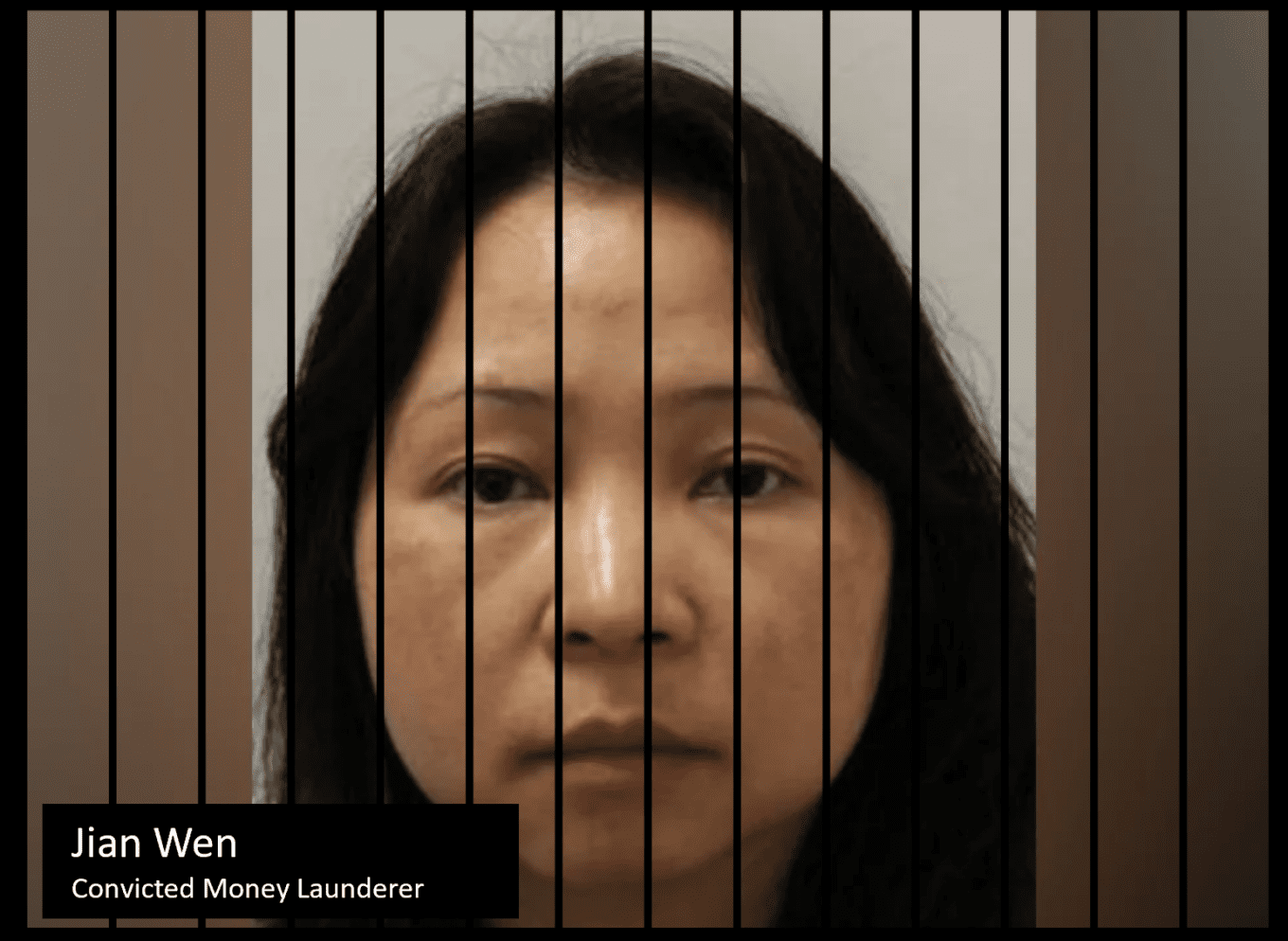Jian Wen, a former fast food worker, has been sentenced to six years and eight months in prison for laundering bitcoin linked to an alleged $5.6 billion investment fraud in China. She claimed to be a victim herself. Wen’s conviction is a significant development in the ongoing investigation into a massive crypto crime that saw over 61,000 bitcoin, now worth more than $4 billion, seized by authorities.
Jian Wen was accused of converting bitcoin into cash and property to help hide the proceeds of a 5 billion pound ($6.4 billion) fraud. Prosecutors said she helped hide the source of money allegedly stolen from nearly 130,000 Chinese investors in fraudulent wealth schemes between 2014 and 2017.
She was not alleged to have been involved in the underlying fraud, which prosecutors said was masterminded by another woman who Wen believed was independently wealthy.
Wen’s journey from living in the basement of a Chinese takeaway in East London to residing in a mansion and indulging in luxury shopping sprees at Harrods marks a dramatic transformation. Despite her claims of being a victim, the court found her guilty of money laundering approximately 150 bitcoin for a Chinese woman between 2017 and 2022.
Judge Sally-Ann Hales, in her sentencing remarks, emphasized the sophisticated nature of the crime and the substantial planning involved. “I am in no doubt that you knew what you were dealing with,” she stated.
Wen, who holds both British and Chinese citizenship, has consistently denied the charges and is appealing her conviction. She maintains that she was merely following instructions from a woman her lawyers describe as the “mastermind” behind the operation. Wen’s legal team argued that she was unaware the money was fraudulently obtained and claimed she was “duped and used,” expressing her deep regret over her involvement.
However, the prosecution painted a different picture, asserting that Wen was motivated by greed and was a key decision-maker for the cryptocurrency wallet under her control. The jury, after a nearly two-month-long trial, found Wen guilty based on extensive evidence.
The trial also shed light on the network of intermediaries and professionals in London and Dubai who assisted Wen and her associate in laundering bitcoin and purchasing assets across the UK, Europe, and Dubai. This sophisticated network facilitated the conversion of illicit gains into tangible assets, complicating the investigation and recovery efforts.
Wen’s rapid ascent from a basement worker to a high-end lifestyle underscores the transformative, albeit illicit, potential of cryptocurrency. It also highlights the challenges faced by law enforcement in tracking and prosecuting digital currency-related crimes.
While Wen’s legal team continues to fight her conviction, the broader investigation into the $5.6 billion fraud in China remains ongoing. The woman identified as the “mastermind” has been arrested, but she denies the allegations, claiming that her substantial bitcoin holdings were acquired through lawful means.





